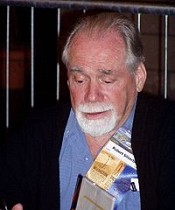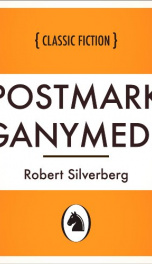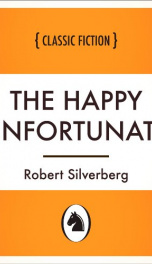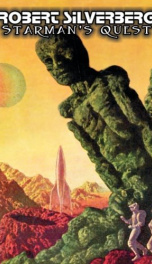Silverberg Robert

Robert Silverberg (born January 15, 1935) is an American author, best known for writing science fiction. He is a multiple winner of both the Hugo and Nebula Awards. Silverberg was born in Brooklyn, New York. A voracious reader since childhood, he began submitting stories to science fiction magazines during his early teenage years. He attended Columbia University, receiving an A.B. in English Literature in 1956. His first published novel, a children's book called Revolt on Alpha C, appeared in 1955, and he won his first Hugo the following year for "best new writer". For the next four years, by his own count, he wrote a million words a year, mostly for magazines and Ace Doubles. In 1959 the market for science fiction collapsed, and Silverberg turned his ability to write copiously to other fields, from carefully researched historical nonfiction to softcore pornography. In the mid-1960s, science fiction writers were starting to become more literarily ambitious. Frederik Pohl, then editing three science fiction magazines, offered Silverberg carte blanche in writing for them. Thus inspired, Silverberg returned to the field that gave him his start, paying far more attention to depth of character development and social background than he had in the past and mixing in elements of the modernist literature he had studied at Columbia. The books Silverberg wrote during this time were widely considered to be a quantum leap forward from his earlier work. Perhaps the first book to indicate the new Silverberg was To Open the Sky, a fixup of stories published by Pohl in Galaxy Magazine, in which a new religion helps people reach the stars. That was followed by Downward to the Earth, a story containing echoes of material from Joseph Conrad's work, in which the human former administrator of an alien world returns after the planet's inhabitants have been set free. Other acclaimed works of that time include To Live Again, in which the memories and personalities of the deceased can be transferred to other people; The World Inside, a look at an overpopulated future; and Dying Inside, a tale of a telepath losing his powers. In 1969 Nightwings was awarded the Hugo for best novella. Silverberg won a Nebula award in 1970 for the short story Passengers, two the following year for his novel A Time of Changes and the short story Good News from the Vatican, and yet another in 1975 for his novella Born with the Dead. After suffering through the stresses of a thyroid malfunction and a major house fire, Silverberg moved from his native New York to the West Coast in 1972, and announced his retirement from writing in 1975. In 1980 he returned, however, with Lord Valentine's Castle, a panoramic adventure set on an alien planet, which has become the basis of the Majipoor series;— a cycle of stories and novels set on the vast planet Majipoor, a planet much larger than Earth and inhabited by no less than six different species of planetary settlers. Silverberg received a Nebula award in 1986 for his novella Sailing to Byzantium, which takes its name from Yeats' poem; a Hugo in 1990 for Enter a Soldier. Later: Enter Another; and in 2004 he was named a Grand Master by the Science Fiction Writers of America. Silverberg has been married twice. He married his first wife, Barbara Brown, in 1956. The couple separated in 1976 and divorced a decade later. Silverberg married science fiction author Karen Haber in 1987. The couple resides in the San Francisco Bay Area. In 2007, Silverberg was elected president of the Fantasy Amateur Press Association. forthcoming
do you like this author?
What readers are saying
What do you think? Write your own comment on this book!
write a commentWhat readers are saying
What do you think? Write your own comment on this author!
write a commentBook list

Postmark Ganymede
Series:
Unknown
Year:
Unknown
Raiting:
1.5/5
Great Sci Fi short story by Robert Silverberg!
Show more
add to favoritesadd In favorites

The Hunted Heroes
Series:
Unknown
Year:
Unknown
Raiting:
2/5
It must have been hell for her. We had wandered fruitlessly over the red sands all day, both of us listening for the clicks of the counter. And the geigers had been obstinately hushed all day, except for their constant undercurrent of meaningless noises.
A story from Robert Silverberg, an American author, best known for writing science fiction.
Show more
add to favoritesadd In favorites
A story from Robert Silverberg, an American author, best known for writing science fiction.
Show more

The Happy Unfortunate
Series:
Unknown
Year:
Unknown
Raiting:
1/5
Dekker, back from space, found great physical changes in the people of Earth; changes that would have horrified him five years before. But now, he wanted to be like the rest?even if he had to lose an eye and both ears to do it.
Show more
add to favoritesadd In favorites
Book list

Postmark Ganymede
Series:
Unknown
Year:
Unknown
Raiting:
1.5/5
Great Sci Fi short story by Robert Silverberg!
Show more
add to favoritesadd In favorites

The Hunted Heroes
Series:
Unknown
Year:
Unknown
Raiting:
2/5
It must have been hell for her. We had wandered fruitlessly over the red sands all day, both of us listening for the clicks of the counter. And the geigers had been obstinately hushed all day, except for their constant undercurrent of meaningless noises.
A story from Robert Silverberg, an American author, best known for writing science fiction.
Show more
add to favoritesadd In favorites
A story from Robert Silverberg, an American author, best known for writing science fiction.
Show more

The Happy Unfortunate
Series:
Unknown
Year:
Unknown
Raiting:
1/5
Dekker, back from space, found great physical changes in the people of Earth; changes that would have horrified him five years before. But now, he wanted to be like the rest?even if he had to lose an eye and both ears to do it.
Show more
add to favoritesadd In favorites

Starman's Quest
Series:
Unknown
Year:
Unknown
Raiting:
4.5/5
“Starman's Quest” became the ninth science-fiction novel of an exceedingly prolific American author of the 20th century. Works of Robert Silverberg count more than 60 novels, a great quantity of short stories, anthologies and none-fiction. Some of his stories were later on adapted for film and television. In this novel of interstellar journeys the protagonist, Alan Donnel, is to unravel the problem, which all astronauts are faced with in their trips away from Earth – the problem of time and its influence, physical and psychic, on travellers.
This is surely an exciting piece of modern science fiction by a master of the field.
Show more
add to favoritesadd In favorites
This is surely an exciting piece of modern science fiction by a master of the field.
Show more
What readers are saying
What do you think? Write your own comment on this author!
write a commentif you like Silverberg Robert try:
readers also enjoyed
What readers are saying
What do you think? Write your own comment on this author!
write a commentif you like Silverberg Robert try:
readers also enjoyed
Do you want to exchange books? It’s EASY!
Get registered and find other users who want to give their favourite books to good hands!

